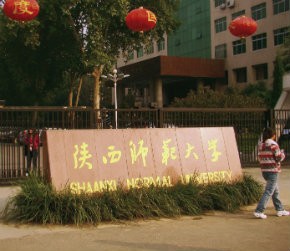Classroom Christianity: How theology is flourishing in China

It is no secret that China’s leaders have officially delayed the once-imminent arrival of socialist utopia and accepted that religion can continue in the meantime. But Christianity’s place in Chinese society remains complex and multifaceted. At the same time that underground Roman Catholic seminaries were being closed in Inner Mongolia in 2012, Christians in other provinces were being elected to municipal positions. Christian churches flourish in many places, while official speeches hint at the limits of tolerance.
In a speech to the Communist Party Congress a year ago, for example, President Hu Jintao spoke of the threat of “international hostile forces” that are “plotting to intensify their imposition of Westernization and division in China.” Such remarks implicitly target religions like Christianity that have strong foreign ties. Though Christianity has been present in Chinese culture since the seventh century, it is still widely seen as a foreign import and is vulnerable to worries about Western infiltration. There is some justification for this—almost all of the unregistered Protestant seminaries use American study materials, for example.
In between such political speeches, however, religion has been thriving. Why is Christianity becoming more acceptable to the Communist Party? A cynical view suggests that when religion is out in the open it is more easily controlled. Others point to the social cohesion that Christianity is perceived as bringing—and China is very interested in reducing levels of corruption and economic crime. The belief that the Protestant work ethic brought great benefit to European and American societies still lingers, and leaders have openly discussed how to emulate this source of strength and encourage citizens to become good Christian-style economic operatives. A more liberal stance toward religion is also, of course, a corollary of encouraging economic growth and individual enterprise. It’s difficult to encourage entrepreneurship while cracking down on private lives.





